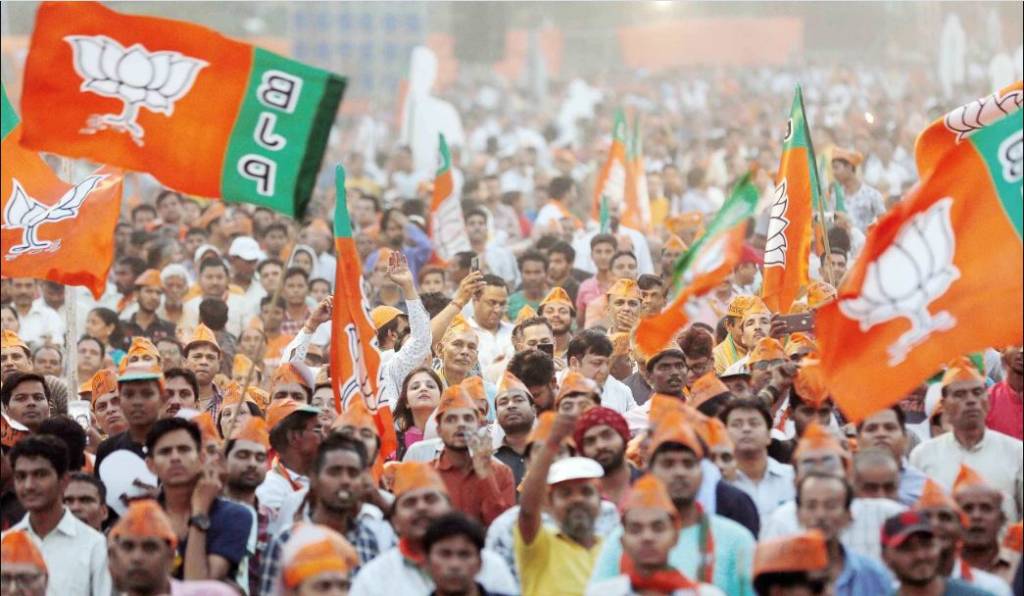The results of the Delhi assembly election has been announced and BJP has suffered a heavy defeat. The vote percentage as well as seat tally of BJP has improved substantially but, this is due to last minute push by Union Home Minister Amit Shah, who led a charged campaign in the last few days when it looked like BJP state unit had given up.
BJP’s campaign for Delhi was rigged with factionalism in the state unit. A few days before the election, the factionalism in local unit and corporators came out in public, and Hindustan Times reported the issue on February 6. The matter escalated so far that Amit Shah had to intervene and issue instructions that strong action would be taken against those who did not campaign in support of the declared candidate.
As per the report by Hindustan Times, “There were a few complaints that some of the corporators have pulled back from campaigning due to vested interests; some were upset for not getting tickets.” As per the report, Amit Shah told the corporators that there is no space for intra-party wrangling and the party leaders and Karyakartas must stand united against the AAP.
This is not the first election that BJP lost due to intra-party fighting. In Jharkhand, the fight between former veteran BJP leader Saryu Roy and the then chief minister Raghubar Das cost the party heavily. Ultimately Roy contested against Das and won the Jamshedpur East (Vidhan Sabha constituency) seat.
However, the BJP has controlled intra-party fight to a large extent. The upper echelons of the party are very well sorted but at the lower rung, the problem persists, especially in urban constituencies.
In urban constituencies, the corporators, ward members and mayors want tickets for themselves in the assembly election, and oppose the candidate when do not succeed in the same.
For any seat, whether assembly constituency or parliamentary constituency, there are many contenders and it is obvious that only one can be fielded. The other contenders, who are not successful in bagging the ticket, should support and campaign for the candidate who got the ticket. But, this is not what happens.
The other contenders who are not successful in bagging the ticket try to sabotage their own party candidate to take revenge. These tactics work very well in local elections as well as assembly election.
In Lok Sabha elections, the people vote for the party and the Prime Ministerial candidate, as the national issues are at stake. This was evident in 2014 and 2019 general elections, when many BJP candidates who were not popular in their constituencies won in the name of PM Modi. Many candidates, abhorred by the local people, won the election because people knew it is PM Modi who was going to lead the country, irrespective of the candidate who won the election.
But in local and assembly elections, the support by local leaders is very important, as the people vote for the candidate rather than the party or the chief ministerial face. The support of local candidates is even more important in an election like Delhi assembly 2020, where the chief ministerial candidate in not declared, and therefore, people are more likely to vote for the local leader.
The local leaders have a good number of following as they are some sort of eminent person in the locality. Most of the leaders at the local level have some personal standing, irrespective of the party. And therefore, they have their own voter base, which votes for them or the candidate supported by them; irrespective of the party.
In this situation, support by the local leaders, who could not get the party ticket, becomes very important. Every local leader commands some thousand votes, and if s/he does not support the candidate, or carries a cross voting campaign, the party candidate is very likely to lose. And this is what has perhaps happened with BJP on many seats in the Delhi election.
